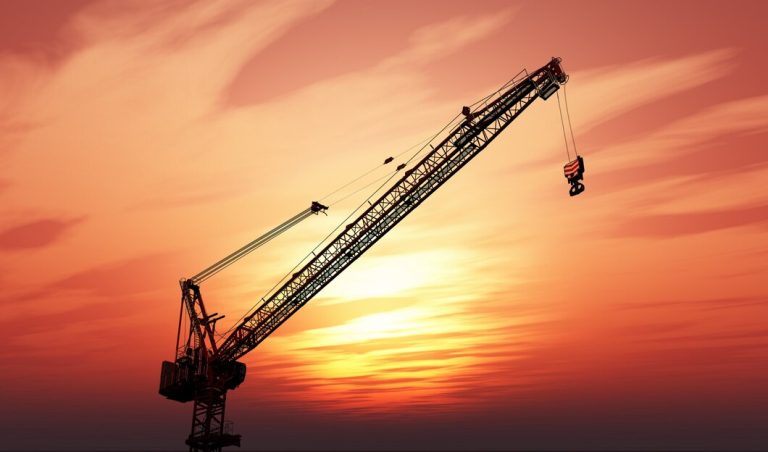Operating a crane is no small task. It’s a demanding role that requires precision, focus, and a deep understanding of safety protocols. A crane operator is critical in construction, handling heavy equipment and materials that keep the project moving forward. Let’s explore what a typical day in the life of a safe crane operator looks like, from preparation to execution.
Morning Preparations
A crane operator’s day begins well before they step into the cab. The morning typically starts with a thorough review of the day’s tasks. This includes studying blueprints, discussing project goals with the site supervisor, and identifying potential challenges. Knowing the weight and dimensions of the materials to be lifted is essential. Proper planning ensures safety and efficiency on the job.
Once planning is complete, operators perform a detailed inspection of their cranes. This includes checking the cables, hydraulic systems, machinery components, and safety devices. Identifying wear or damage early prevents accidents and keeps the crane in good working order. Documentation of these pre-use inspections is a routine practice to comply with safety standards.
The Importance of Safety Meetings
Before the first lift of the day, operators often attend safety meetings or toolbox talks with the crew. These meetings are vital for discussing site-specific hazards, weather conditions, and changes in the work environment. Through these conversations, crane operators and ground workers align on the safety measures necessary to avoid accidents. Everyone involved must be alert and on the same page to create a safe workspace.
Starting the Job
The day’s work begins with everything inspected and safety protocols in place. Climbing into the elevated cab of a tower crane takes physical effort, as it often involves climbing ladders for several minutes. Once seated, operators rely on their knowledge, experience, and keen spatial awareness to execute precise movements.
The first task is often to position the crane and prepare for the lifts. Operators frequently communicate with signalers or spotters on the ground using standard hand signals or radio systems. This creates a seamless flow, lifting heavy materials and moving safely to their designated areas.
Overcoming Challenges on the Job
Working high above ground presents unique challenges. Weather plays a significant role in daily operations. High winds, for instance, can make it unsafe to operate a crane, as they can cause uncontrollable swinging of loads. Operators must continuously monitor environmental conditions and adapt accordingly.
Spatial awareness is another challenge. Cranes operate in crowded construction sites with equipment, workers, and structures. A safe operator must keep track of all surrounding elements while maneuvering a multi-ton load through tight spaces. Achieving this requires complete focus and constant communication with the crew below.
Additionally, crane operators must balance speed with precision. While deadlines are important, rushing can lead to mistakes that compromise safety. By adhering to their training and certifications, operators adhere to the industry’s best practices, ensuring safety is never sacrificed for speed.
The Role of Training and Certification
Operating a crane safely requires extensive training and certification. This training teaches technical skills and emphasizes safety practices and hazard awareness. For example, crane operators in certain regions must obtain certifications demonstrating their knowledge and ability to handle the equipment responsibly.
One such requirement demonstrating the level of competence needed is the NCCCO tower crane certification in Utah, which sets the standard for skilled and responsible crane operation. Operators prove their knowledge of industry regulations through training programs and exams. Such certifications ensure that crane operators are well-versed in operating the machinery and capable of making safety their top priority.
Midday Adjustments and Continued Focus
Throughout the day, crane operators must remain vigilant. Construction sites are dynamic environments where tasks and priorities can change unexpectedly. Operators frequently re-evaluate tasks, adjust positions, or perform additional equipment inspections.
Breaks are also a critical part of the day. Operating a crane takes immense concentration, and fatigue can lead to errors. Scheduled breaks help operators recharge, regain focus, and maintain their ability to perform tasks safely and accurately.
Wrapping Up the Day
The crane operator’s responsibilities aren’t over at the day’s end. Before leaving the site, operators perform end-of-day checks on their cranes to ensure everything is in proper condition for the next shift. Cleaning and maintaining the equipment is also a standard routine.
Lastly, operators often review the day’s work with supervisors, discussing what went well and identifying areas for improvement. Reflecting on their performance helps teams build safer and more efficient practices for the future.
The Impact of a Safe Crane Operator
Crane operators play a crucial role in the success of construction projects. Their expertise in handling complex machinery and their commitment to safety create reliable outcomes for everyone involved. It’s a career that combines technical skills, problem-solving, and a dedication to teamwork. By following strict safety measures and leveraging their training, safe operators ensure projects are completed on time and without incident.

